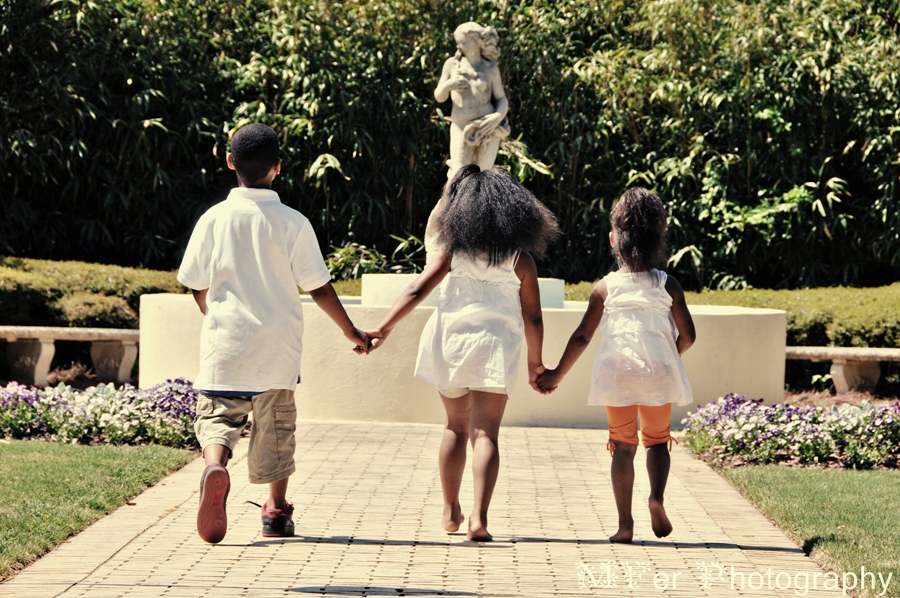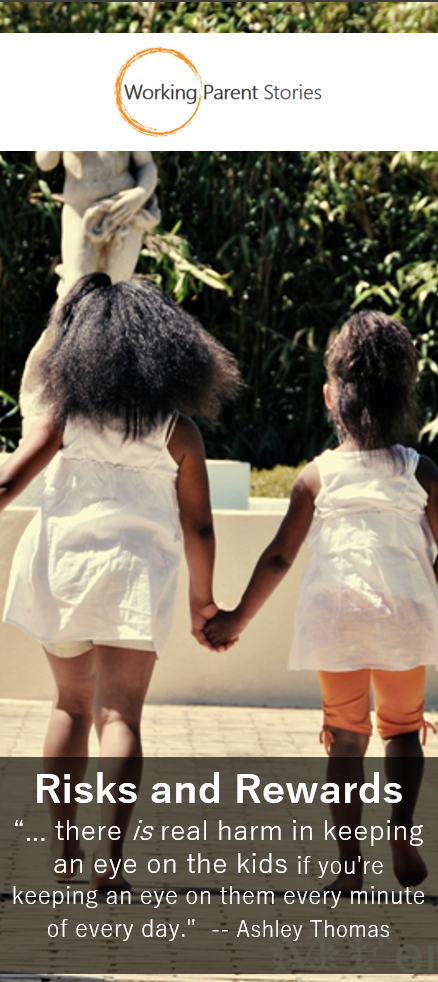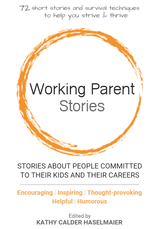|
Pointer to fascinating research about parenting and judging parents
When our kids were growing up they flew alone from Denver to Detroit every summer to visit their grandparents in the Mitten State. They took their first trips when they were seven and eight and were so intent on going alone, they insisted on being there different weeks. Maximizing a rare chance for some undivided attention was probably their primary motivator.
Most of our friends and co-workers knew about the ritual, and I distinctly remember the time one of my co-workers, my manager actually, told me, "I would never let my children travel alone on a airplane." Apparently she wasn't impressed with our attempt to foster a strong sense of independence in our kids while ensuring some quality time with Grandma and Grandpa. Instead, she thought we were putting them at great risk. And I assume she thought the risk was greater than any potential reward. This memory was triggered recently when a friend pointed me to an article written by Tania Lombrozo that was published on the NPR web site in 2016. It's called "Why Do We Judge Parents For Putting Kids at Perceived - But Unreal - Risk?" and references research* published in the open access journal Collabra. The article and research provide really fascinating, and sometimes surprising, information about how we perceive various risks parents take, and it draws attention to some thought provoking ideas like the following:
Working parents need to make a lot of deliberate decisions about childcare, and this article makes it clear that society judges those decisions ... sometimes harshly. And sometimes unfairly and ignorantly. This article will get you thinking, hard, about making decisions that will help your children both short-term and long-term. It may build your confidence in terms of decisions you've made or are making. Or it may cause you to question some decisions. Either way, it'll make you think. File this story under "Fresh Thinking". And at least try to skim the article. It's really fascinating.
* More about the research: It included a series of clever experiments written by authors Ashley Thomas, Kyle Stanford and Barbara Sarnecka. They found evidence that shifting people's moral attitudes toward a parent influences the perceived risk to that parent's unattended child. Learn more.
0 Comments
Leave a Reply. |
The StoriesArchives
March 2022
Categories
All
|
Photos from barnimages.com, marcoverch, truewonder, donnierayjones, marcoverch, shixart1985, Gustavo Devito, edenpictures, nan palmero, quapan, The Pumpkin Theory, bark, opassande, Semtrio, Ivan Radic (CC BY 2.0), verchmarco (CC BY 2.0), Didriks, shawnzrossi, shixart1985 (CC BY 2.0), madprime, marksmorton, CT Arzneimittel GmbH, NwongPR, franchiseopportunitiesphotos, anotherlunch.com, jdlasica, wuestenigel, Frinthy, romanboed, Doris Tichelaar, quinn.anya, A_Peach, VisitLakeland, MEDION Pressestelle, Darren Wilkinson, bratislavskysamospravnykraj, Anthony Quintano, Danielle Scott, pockethifi, Bridgette Rehg, Martin Pettitt, PersonalCreations.com, wuestenigel, Thad Zajdowicz, archer10 (Dennis) 139M Views, Infomastern, beltz6, The National Guard, futurestreet, daveynin, OIST (Okinawa Institute of Science and Technology), Rinet IT, shixart1985, mikecogh, JeepersMedia, Ryan Polei | www.ryanpolei.com, Jake.Christopher., aleksandrajovovich, thepeachpeddler, wwward0, flossyflotsam, Got Credit, Senado Federal, Corvair Owner, lookcatalog, moodboardphotography, dejankrsmanovic, Carine fel, ElleFlorio, {Guerrilla Futures | Jason Tester}, greg westfall., Arlington County, mariaronnaluna, quinn.anya, wuestenigel, Tayloright, insatiablemunch, MrJamesBaker, Scorius, Alan Light, Monkey Mash Button, www.audio-luci-store.it, wohlford, Vivian Chen [陳培雯], okchomeseller, BoldContent, Ivan Radic, verchmarco, donnierayjones, Czar Hey, US Department of Education, Andrew Milligan Sumo, Michel Curi, anotherlunch.com, ProFlowers.com, Cultural viewpoints from around the world, alubavin, yourbestdigs, Rod Waddington, Tayloright, Wonder woman0731, yourbestdigs, donald judge, Thomas Leth-Olsen, Infinity Studio, shixart1985, wuestenigel, francesbean, Roger Blackwell, MrJamesBaker, Luca Nebuloni, MFer Photography, erinw519, boellstiftung, North Carolina National Guard, A m o r e Caterina, MrJamesBaker, bellaellaboutique, Free For Commercial Use (FFC), Prayitno / Thank you for (12 millions +) view, wuestenigel, Matt From London, MadFishDigital, Kompentenzzentrum Frau und Beruf, mikecogh, CreditDebitPro, marciadotcom, Mr.Sai, _steffen






 RSS Feed
RSS Feed